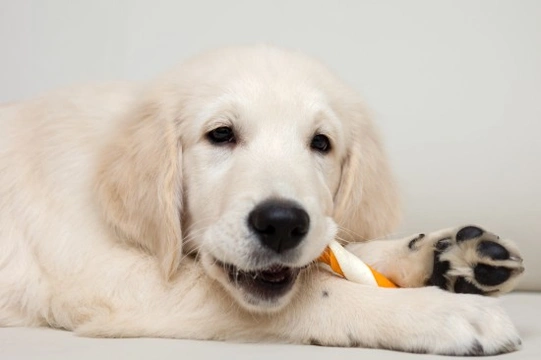
Some of the stranger forms of canine behaviour decoded
Every dog owner has at some point stopped and pondered over their dog’s behaviour, and wondered why they are doing some particular thing that they are doing. However, the vast majority of canine behaviours that we do not initially understand are perfectly natural, fully explainable, and come about as part of a conditioned or evolutionary response on the part of your dog.
That being said, there are some really out-there behaviours that are considered to be strange and unusual even in dog terms, and that may be inexplicable, unnatural or hard to sort out. It is worth making yourself aware of the most common of these behaviours, in order to gain an insight into how your dog’s mind is working, and suss out if there is a problem that you may need to deal with. Read on to find out more!
Strange but natural behaviours
Some of the rather strange but still explainable and normal behaviours that your dog might display are not common to all dogs, and so, can lead the dog owner to believe that something is not quite right when really, it is fine.
These include things like rolling around in foul-smelling detritus, which, while unpleasant, makes perfect sense in canine terms and is not likely to be something that you can fully eradicate.
Many dogs are also very keen on digging burrows and burying their toys or food, while other dogs may dig about quite cheerfully for no obvious reason, again, fulfilling a natural evolutionary urge.
Building dens or nests is again not hugely common but perfectly normal and natural for some dogs, as is a lot of spinning around and fidgeting to get comfortable before going to sleep.
Canine pica
Pica is a condition or disorder that can affect any animal, including people as well as dogs. The term pica is used to describe behaviour where the dog eats things that are not actually food, such as smaller items of clothing, toys, or anything else that they can find.
This is obviously potentially very dangerous for your dog, as anything that is not readily digestible can cause blockages, perforations or other problems in your dog’s insides.
Coprophagia
While pica refers to the eating of an inanimate and unnatural object, coprophagia is the word used to describe a dog that eats faeces. Often, this will consist of cow or sheep faeces if your dog comes across these regularly on their walks, but it can be even more offensive than this, and can cause your dog to eat cat faeces from the garden or litter tray, or even their own faeces once they have been to the toilet.
Coprophagia can range from merely unpleasant to potentially harmful to your dog, and is a complex condition that has many potential causes. It can be a psychological issue, or be due to your dog lacking some essential nutrients or trace elements within their diet, causing them to seek to replace the missing elements in unusual ways.
It can also be triggered by stress or uncertainty, as in the wild, dams would on occasion eat the faeces of her litter, to remove the signs that they had been there and aim to protect them against predation or other dangers. Check that your dog is happy and secure and has a stable routine to their lives, and that they are not missing anything from their diet.
Compulsive behaviours
The term OCD (obsessive-compulsive disorder) is one that we mostly associate with people, and even with the amount of publicity that the condition receives today, it is still relatively poorly understood. OCD or the acting out of compulsive behaviours can also affect dogs too, and lead to some rather unusual and disturbed behaviours, which can take on many different forms.
Some signs to look out for are your dog constantly doing a patrol-like round of the home and garden and failing to settle down or sleep without great difficulty, and other anxiety-related or constantly repeated patterns.
Barking constantly, particularly when the dog is alone, is another common canine compulsion, as is fastidiously resource guarding or hiding toys and food. In some cases, compulsive behaviours in the dog may come about as a simple result of boredom and too much time left alone, causing your dog to make their own fun and find ways of passing their time and entertaining themselves.
Ensuring that your dog is not stressed or anxious and is not left alone without entertainment for long periods of time should be your first step towards trying to get to the root of the problem, and resolving it.
Polyphagia
The word polyphagia refers to an insatiable appetite or failure to stop eating when the body gives the dog’s mind signals that it is full. Polyphagia is complex, and can have many root causes, from learned experiences of going without food for long periods of time leading to physical stockpiling, to a lack of impulse control, to fear of when they will get their next meal.
Ensure that your dog is fed appropriate portions to a very fixed timescale, and do not over-feed your dog. You may need to consult a canine behaviourist to get to the bottom of the cause of the problem, and help you to resolve it for good.



